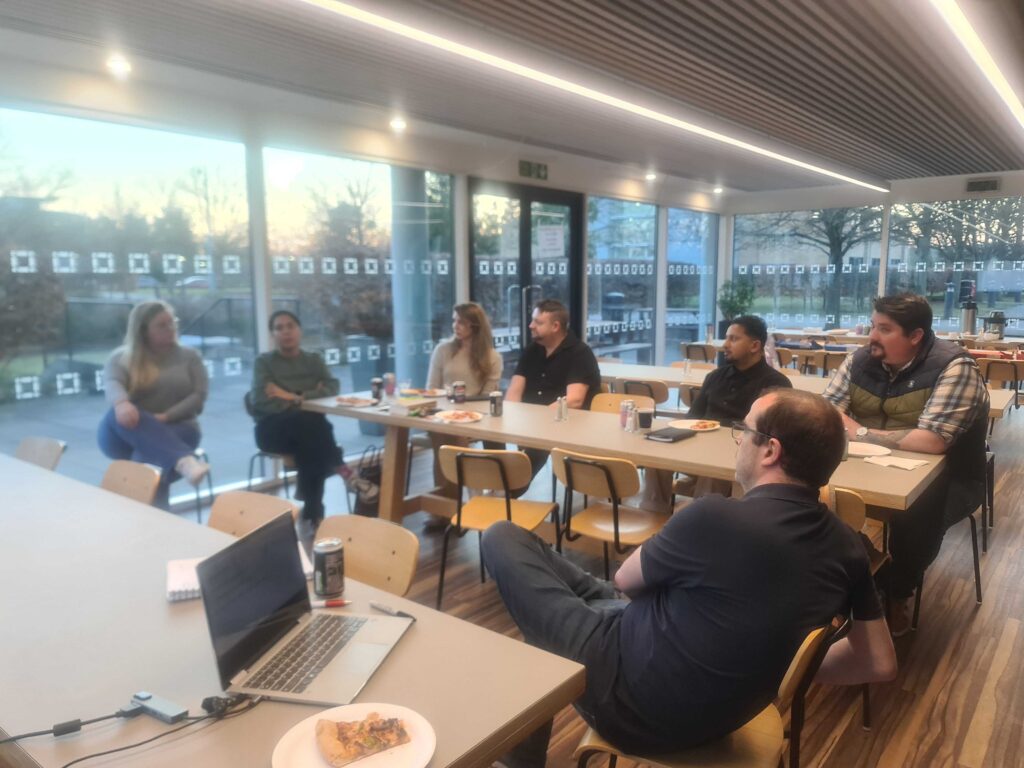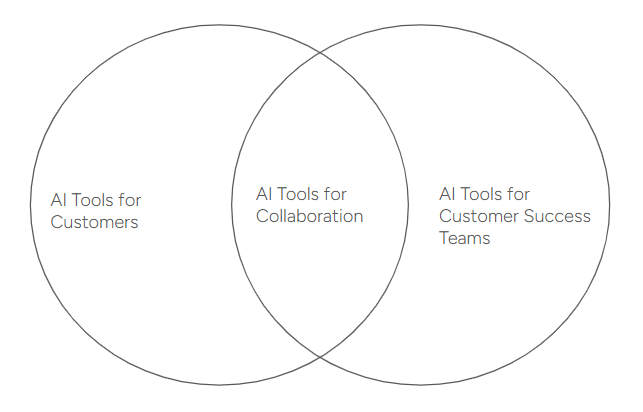This week we had our first Cambridge Customer Success meetup hosted at St John’s Innovation Centre in Cambridge.
We discussed a range of topics from AI in Customer Success through to different methods of communicating with clients, getting engagement from silent clients and how important it is for Customer Success teams to have the full support of their C-Suite.
AI can certainly help within Customer Success, but the consensus was, it is still very much the human element that adds the significant value that our customers benefit from and helps to secure a long term positive customer relationship.

**Spotlight Topic**
AI In Customer Success
The spotlight topic at March’s meetup was ‘AI in Customer Success’. A very trending topic which came up a lot in the suggestions list a month or so ago.
Whilst AI tools in Customer Success tend to benefit both the customer and CS teams to some degree, they are normally tailored to prioritise one. However there are some that benefit both, equally, and personally speaking, this is where I see the most value being derived from AI in Customer Success.

This list of AI tools and functions is quite long and ever growing, but here are some of the common tools you hear of within Customer Success currently.

With companies on average using 100 different SaaS tools each [1], employees are inundated with data, coming from all directions at all frequencies.
Dashboards are typically users go to asset when it comes to understanding their data, key metrics and trends. Unfortunately dashboards are inherently limited to the data and filters applied to them. Additionally with 100 SaaS products being used per business on average, dashboard fatigue is very real.
AI-Data Analyst
Providing a customer with their own AI-Data Analyst empowers customers and CS teams to perpetually unlock value from data through natural language questions.
Consider a SaaS tool monitoring a buildings environmental conditions. The dashboard for which would likely tell the viewer, current Temperature levels in different rooms and floors, energy usage, humidity… and how these have changed over time and highlighting trends.
These are great outcomes and show value, but to a degree, limited. What if users could ask an AI-Data Analyst with access to all the data, and context of the business, questions that could be answered by the data, but would have typically needed someone’s time to trawl and slice the data.
What if a question in natural language could just be asked and the AI-Data Analyst provides an answer, visuals or even and entire dashboard of the fly based purely on the data, context and question.
Thinking of the use case above. The dashboard will show a user temperature changes over time, which rooms get hotter or colder, but can it give more actionable insights? For example, asking a AI-Data Analyst.
“Over the last 6 months, which part of the building loses temperature the fastest on average?”… “Room X, always loses temperature faster than any other part of the building.“
Instant additional value, and perpetual value as business priorities change and the outcomes needed from the data are different.
“If we reduced our sensor light to only come on for 5 minutes instead of 8 minutes, what would the energy saving be per month?”
Continually unlocking value.
Summary
It was a great first session, great to meet up in person, share some pizza, thoughts, ideas and some current stresses. We certainly can see the value in AI in CS and it was interesting listening to everyone’s perspective, what they have tried, what they would like to try and where they see it going.
Ultimately, whilst AI Tools in CS will likely offer varying levels of benefit, I think we were all agreed that the heart of the relations CS teams build with their clients, heavily relies on the human first principle.
Come and join us for the next event.
James – Green Custard
Leave a Reply